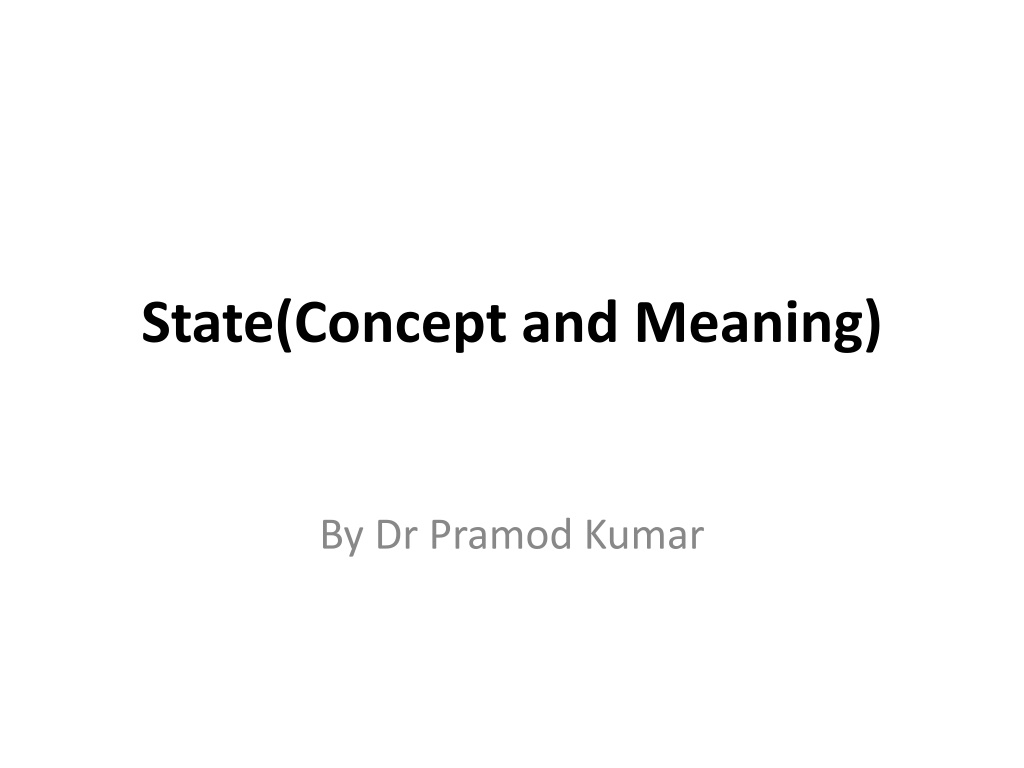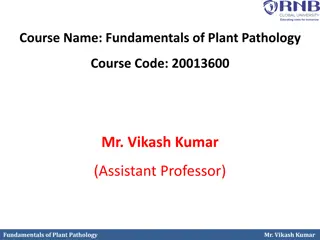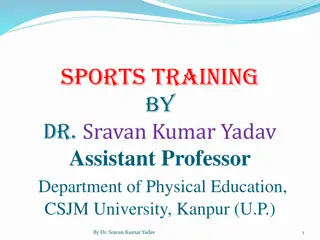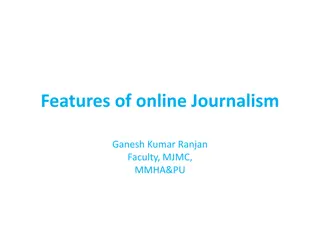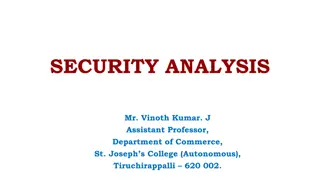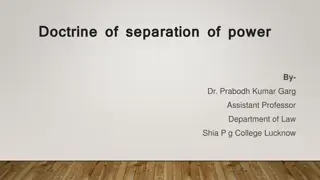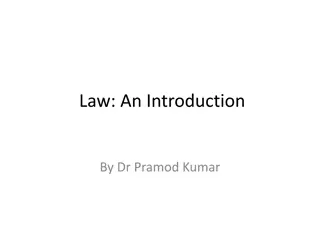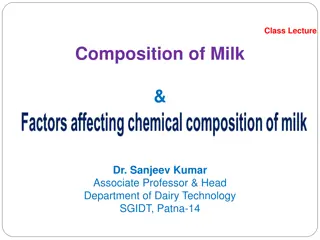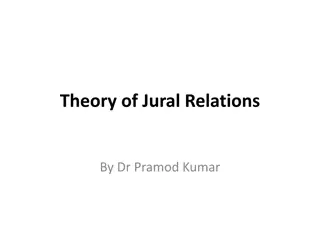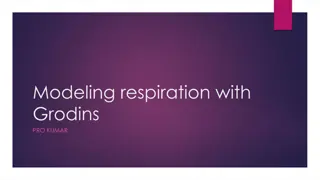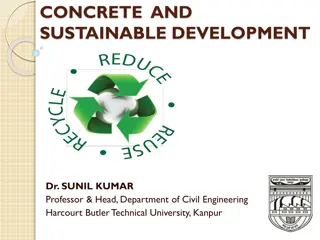Understanding the Concept of the State by Dr. Pramod Kumar
The concept of the State is central to traditional political theory, with varying significance in modern political thought. It encompasses the idea of a community with legitimate authority over a territory. Various definitions by scholars like Sidgwick, Garner, and Laski highlight the key elements of the State: population, territory, government, and sovereignty. Population is emphasized as essential for the State's functioning, as seen in historical perspectives by thinkers like Aristotle and Plato.
Download Presentation

Please find below an Image/Link to download the presentation.
The content on the website is provided AS IS for your information and personal use only. It may not be sold, licensed, or shared on other websites without obtaining consent from the author. Download presentation by click this link. If you encounter any issues during the download, it is possible that the publisher has removed the file from their server.
E N D
Presentation Transcript
State(Concept and Meaning) By Dr Pramod Kumar
The concept of the State The concept of the State has figured as the central theme of traditional political theory. R.G. Gettel defined political science as the science of the state , while J.W. Garner claimed that political science begins and ends with state . In modem political theory, the significance of the concept of the state has been fluctuating.
The concept of the State Machiavelli expressed his idea as, the power which has authority over man . This was an important idea because it describes the nature of the State, not the end of the State. According to Weber, sociologist, A State is a human community that successfully claims the legitimate use of physical force within a given territory . The Greeks used the term polis or city to express their concept of the state. a famous German monopoly of the
The concept of the State The modem term State was probably derived from status through the adoption of the term by Teutonic peoples. It was Niccolo Machiavelli ( 1469 1527) who first used the term state in his writings. His important work is titled as Prince . The state is the most universal and most powerful of all social institutions. The state is a natural institution. Aristotle said man is a social animal and by nature he is a political being. To him, to live in the state and to be a man were identical.
Definition According to Sidgwick. State is a combination or association of persons in the form of government and governed and united together into a politically organized people of a definite territory. According to Garner, State is a community of people live in a definite form of territory free of external control and possessing an organized government to which people show habitual agreement. Prof. Laski defines state as a territorial society divided into government and subjects whose relationships are determined by the exercise of supreme coercive power. Frederick M. Watkins defines the state as a geographically delimited segment of human society united by common obedience to a single sovereign .
Elements of state From the above definitions, it is clear that the following are the elements of the state 1. Population 2. Territory 3. Government 4. Sovereignty
Elements of state Population: It is the people who make the state. Population is essential for the state. According to Aristotle, the number should be neither too large nor too small. It should be large enough to be self sufficing and small enough to be well governed According to Plato the ideal number would be 5040. Greek thinkers like Plato and Aristotle thinking on the number was based on small city states like Athens and Sparta. Modern states vary in population.
Territory There can be no state without a fixed territory. People need territory to live and organize themselves socially and politically. It may be remembered that the territory of the state includes land, water and air space. The modern states differ in their sizes. Territory is necessary for citizenship. As in the case of population, no definite size with regard to extent of area of the state can be fixed. There are small and big states According to Prof. Elliott territorial sovereignty or the Superiority of state overall within its boundaries and complete freedom from external control has been a fundamental principle of the modern state life .
Government Government is the third element of the state. There can be no state without government. Government is the working agency of the state. It is the political organization of the state. Prof. Appadorai defined government as the agency through which the force of the State is formulated, expressed and realized. According to C.F. Strong, in order to make and enforce laws the state must have highest authority. This is called the Government.
Sovereignty The fourth essential element of the state is sovereignty. The word sovereignty means supreme and final legal authority above and beyond which no legal power exists. Sovereignty has two aspects : 1) Internal sovereignty 2) External sovereignty Internal sovereignty means that the State is supreme over all its citizens, and associations. External sovereignty means independent and free from foreign or outside control. that the state is
State and Nation The word nation is derived from the Latin word natio which means birth or race. The terms nation and state are used as synonym. Government is often used with the state as synonym. But both the government and the state are two different entities (unities).
Distinction between state and government State consist of population, territory, government and sovereignty while Government is a part of the state State possesses original power while Power of the government are derived from the state State is permanent and continues forever while Government is temporary. It may come and go State is abstract and invisible while Government is concrete and is visible
Branches of Government Executive: It is one of the three branches of government as given above. State functions through the executive, government. It is the duty of the executive or enforce the laws passed by the legislature. The executive who exercise real power is the real executive. The executive who has nominal power is the normal executive. the namely the
Power and functions of executive 1. Enforcing law 2. Maintaining peace and order. 3. Repelling aggression (violence). 4. Building friendly relations with other states 5. Making appointments to higher posts. 6. Raising money and spending them. 7. Convening the sessions of the legislature and conducting business. 8. Issues ordinances whenever the legislature is to in session. 9. Implement schemes and projects to improve he social.
Legislative The legislature is the law making branch. The legislature has an important role in the adjustment of the constitution. The legislature is a deliberative body where matters of social, economic and political concerns are discussed, debated and decided.
Judiciary Judiciary government Machinery (equipment). Its main function is to interrupter laws and administer justice. Functions of judiciary. 1. Administration of justice. 2. To determine what is law and what is the cope (deal with ) and meaning of it. 3. To give advisory opinion on matters referred to it. 4. To issue orders or writs for the purpose of preventing violation of rights and laws. 5. To acts as guardian of the constitution is the third important organ of the
